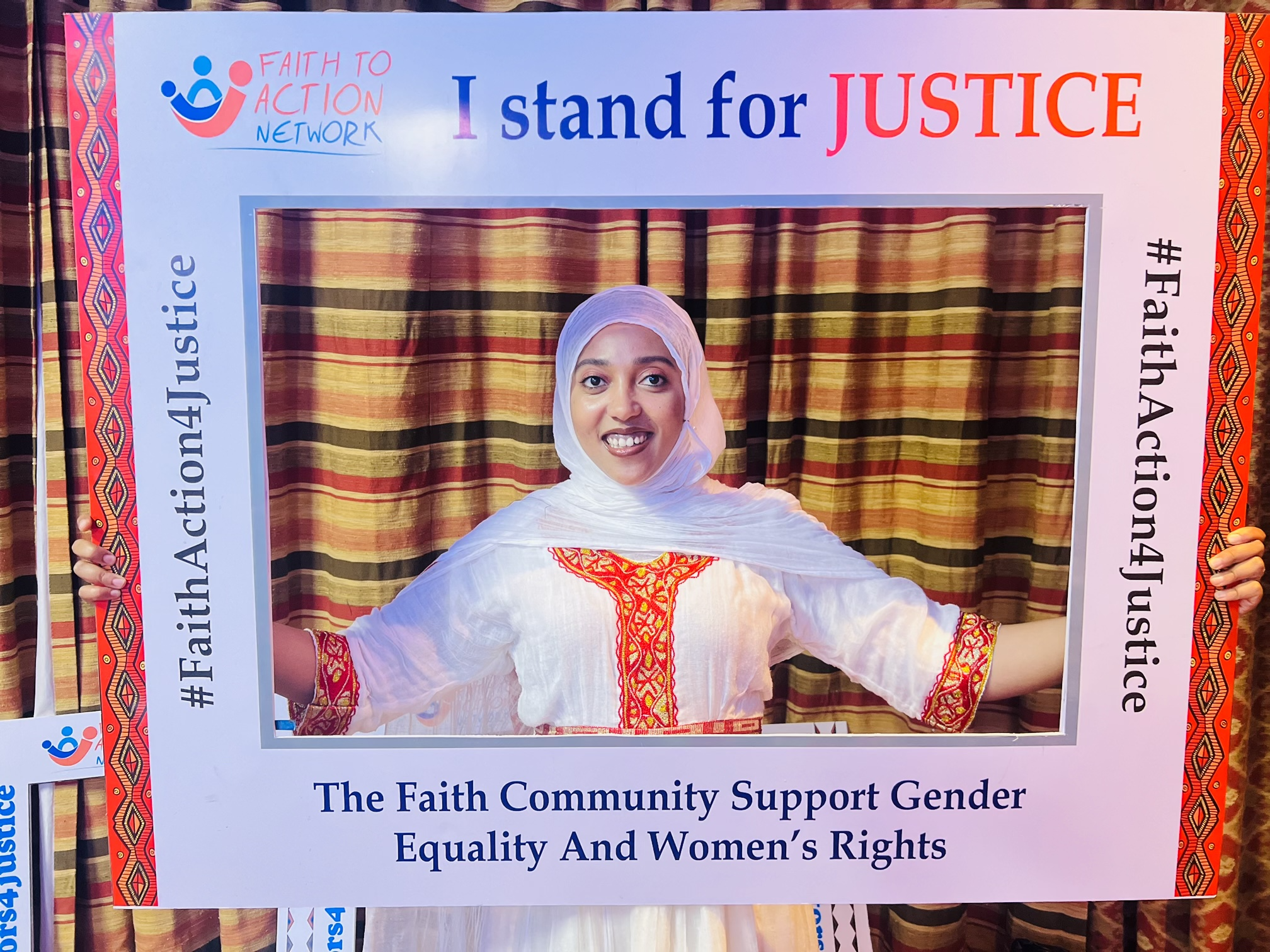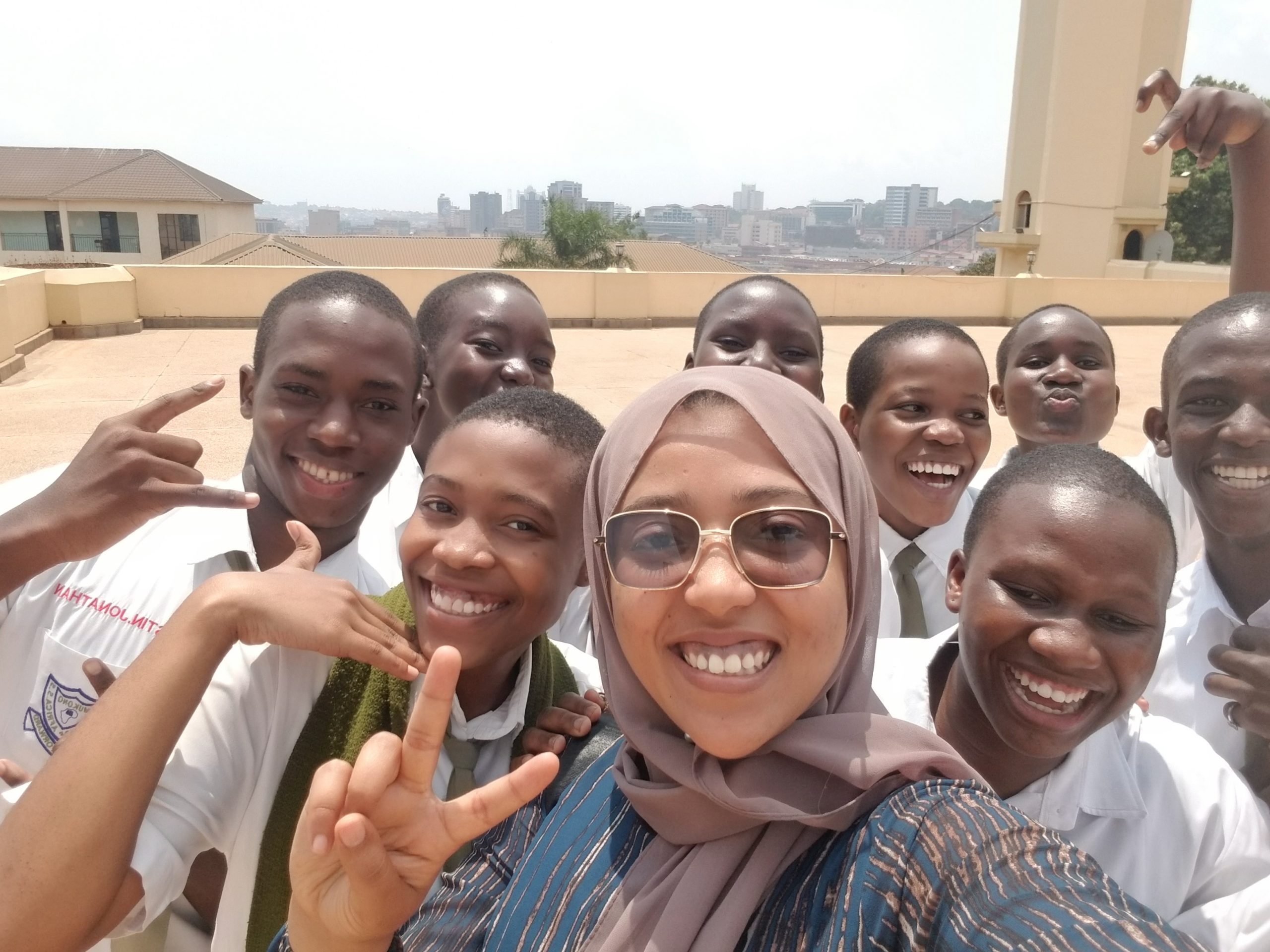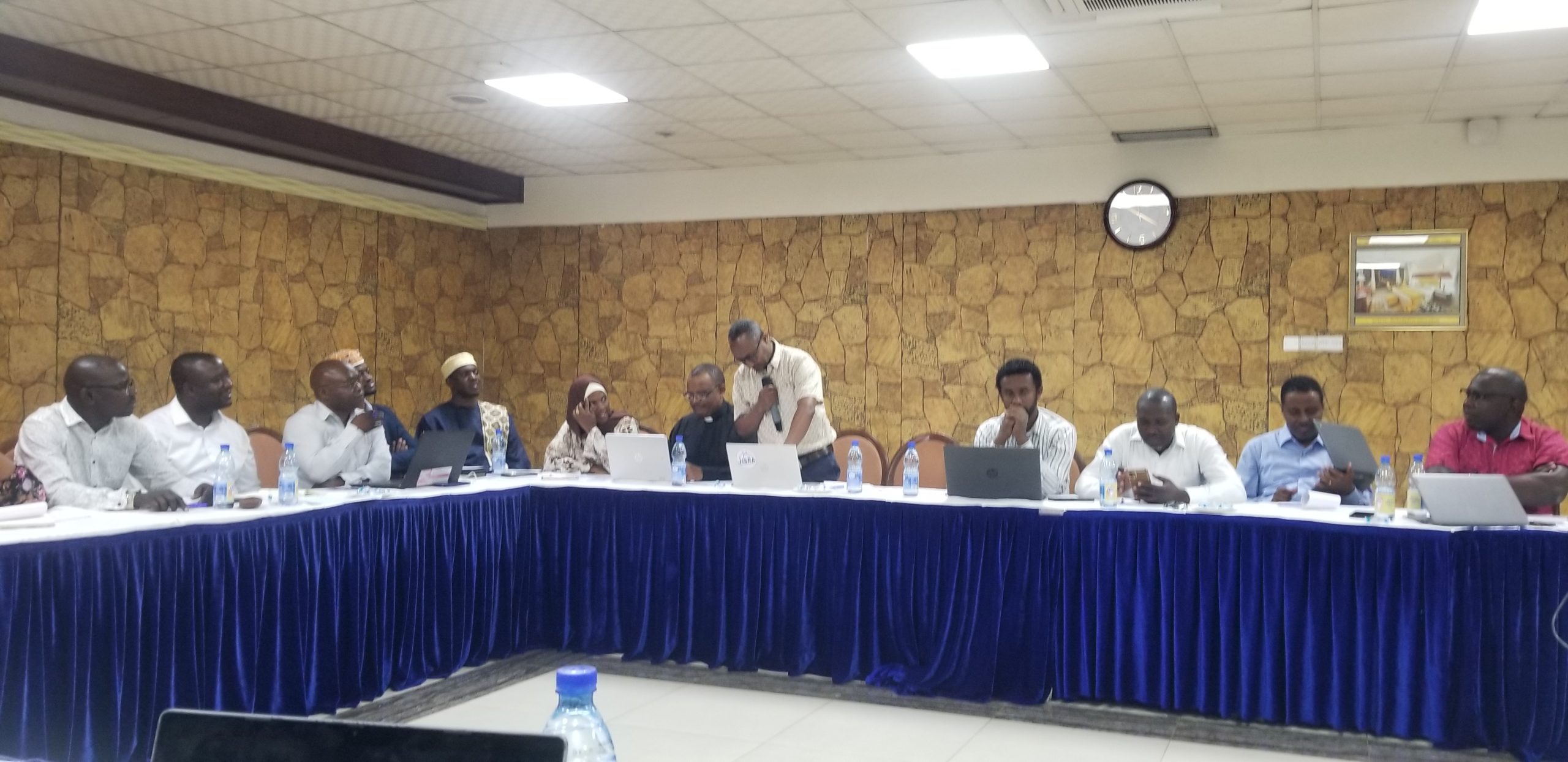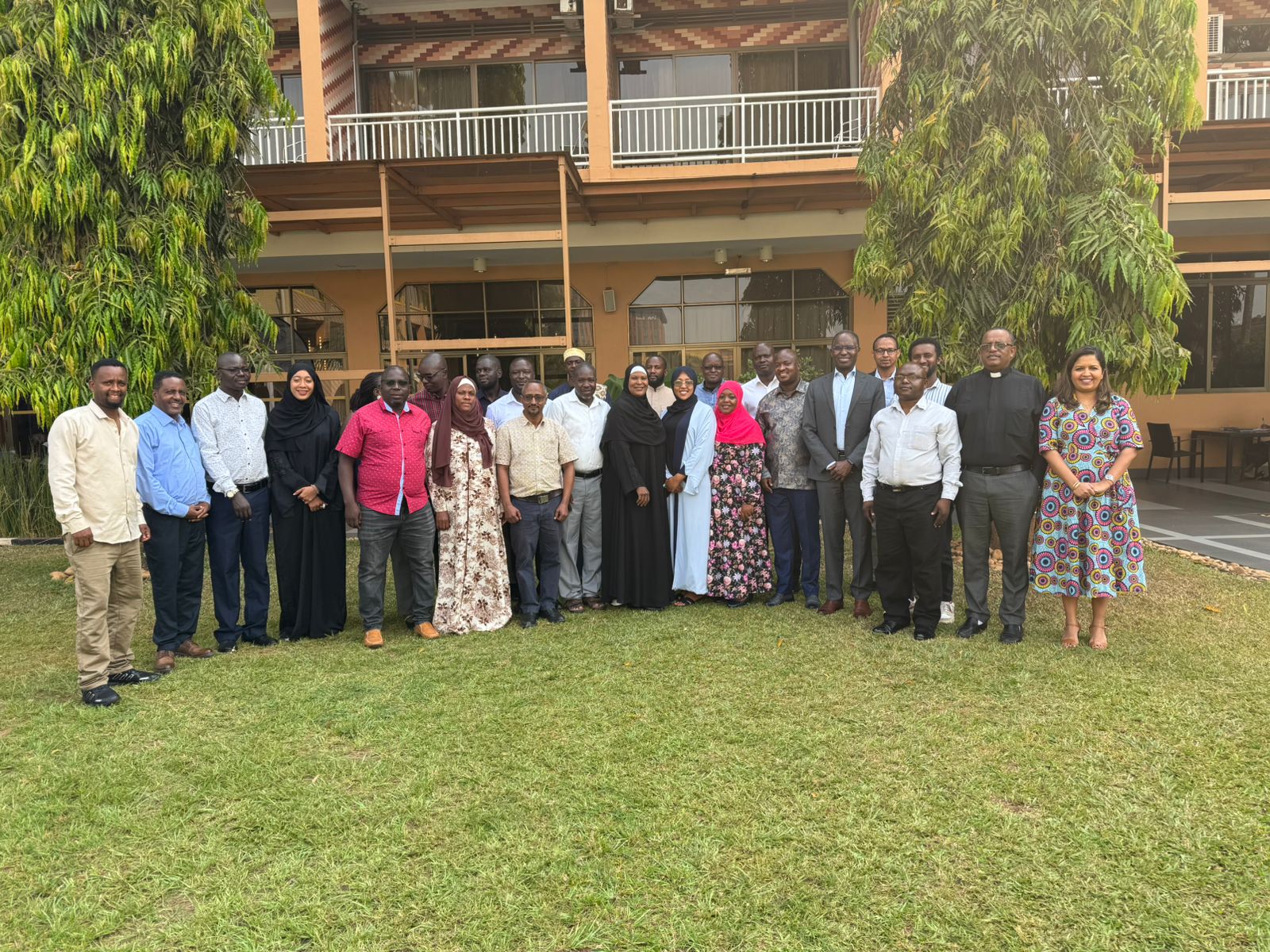Blog
Reflections on the JISRA Training in Uganda: Promoting Islam, FoRB, and Peacebuilding in East Africa
A reflection piece by Nejat Mehdi, Women and Youth Focal Persons at the Ethiopian Interfaith Forum for Development, Dialogue, and Action, on the Dutch-funded ‘Joint initiative for Strategic Religious Action’ training in Kamala, Uganda.
Nejat during the visit to the Gadaffi Mosque as part of the JISRA training in Kampala, Uganda. March 2025.
My recent trip to Uganda for the Dutch-funded ‘Joint initiative for Strategic Religious Action’ (JISRA) training was nothing short of transformative. The vibrant city of Kampala served as the perfect backdrop for a week filled with profound discussions, meaningful connections, and eye-opening learning experiences.
Advancing Religious Literacy on Islam and FoRB
Throughout the training, we delved deeply into the nuances of interfaith dialogue and the importance of promoting Freedom of Religion or Belief (FoRB). The sessions were meticulously structured, allowing for both theoretical explorations and practical applications, including the opportunity to engage with local communities, understanding their perspectives and sharing our collective knowledge.
The workshop provided a safe space for sharing local experiences. We heard from each other about the unique challenges and successes in our respective communities. This open dialogue fostered mutual understanding and empathy, highlighting the importance of creating such spaces in our peacebuilding efforts.
Participants presenting their work during JISRA training. March 2025.
One of the key documents reviewed during the training was the Marrakesh Declaration. This remarkable document has set a higher standard and a framework to be shared and disseminated in our respective countries. Its significance lies in its functional religious character derived from the Medina Charter, which still functions effectively today. The collective participation and effort in making it a reality were truly commendable.
What amazed me most about the Marrakesh Declaration is how such a remarkable peace tool isn’t well-known. Once you understand the importance and potential impact of the Marrakesh Declaration, not sharing it with your community feels like an injustice to peacebuilding initiatives, especially in diverse religious countries like those in the East African community. The Declaration serves as a powerful framework for fostering understanding, cooperation, and peaceful coexistence among different faiths. By promoting its principles, we can work towards creating more inclusive and empathetic societies.
What struck me the most from this workshop was creating platforms for peace workers to have a better understanding of the religion of the community they work with and fostering understanding through clarifying discussion sessions, where networks for religious and traditional peacemakers took the initiative. This not only cleared misunderstandings from other faith groups but also within the Muslim community.
Exploring Uganda’s Religious and Cultural Heritage
Visiting significant sites in Uganda added another layer of richness to the experience. These visits were not just educational but also served as a reminder of the diverse tapestry of cultural and religious histories that shape our world. The interactions with community members were particularly impactful, providing insights into the challenges and triumphs they face in their daily lives.
The visit to the Ugandan National Mosque was a truly heartwarming experience. Not only were we able to visit and learn, but there were also high school students present, visiting the mosque as well. This was indeed a true display of interfaith harmony and understanding.
Group photo with participants, facilitators, and the Peacemakers Network. March 2025.
Our visit to the Ugandan Muslim Youth Development Forum was especially inspiring. Founded by two young boys who survived a terrorist attack, the Forum is now doing remarkable work in skilling the youth with vocational training and creating job opportunities. They also welcome returnees from terrorist groups, helping them become functional members of society. Indeed, what an achievement!
A memorable aspect of the week was the collaborative spirit that permeated every discussion. Participants from various East African countries, including Kenya, Ethiopia, and Uganda, came together, united by a common goal of fostering understanding and peace. This regional collaboration will undoubtedly strengthen joint peacebuilding initiatives and foster a sense of solidarity across borders. The exchange of ideas was both invigorating and inspiring, leaving us with a renewed sense of purpose. We also had rich discussions with the Ugandan Muslim Council management and Uganda Islamic University faculty members. These fruitful discussions and experience-sharing sessions further deepened our understanding of the local context and reinforced the collaborative nature of our efforts.
As I reflect on the week, I am filled with gratitude for the chance to participate in such a significant initiative. The lessons learned and connections made will undoubtedly influence my work going forward. The experience reaffirmed my belief in the power of dialogue and collaboration in creating a more inclusive and empathetic world.

About Nejat Mehdi Oumer
Nejat Mehdi Oumer serves as the Women and Youth Focal Person and secretariat for Ethiopian Interfaith Women and Youth Networks at the Ethiopian Interfaith Forum for Development, Dialogue, and Action. With expertise in mediation, negotiation, and interfaith dialogue, she promotes gender equality and religious freedom and is committed to peacebuilding and environmental stewardship, creating inclusive platforms that foster empathy and collaboration within faith communities.
Follow the Network on social



